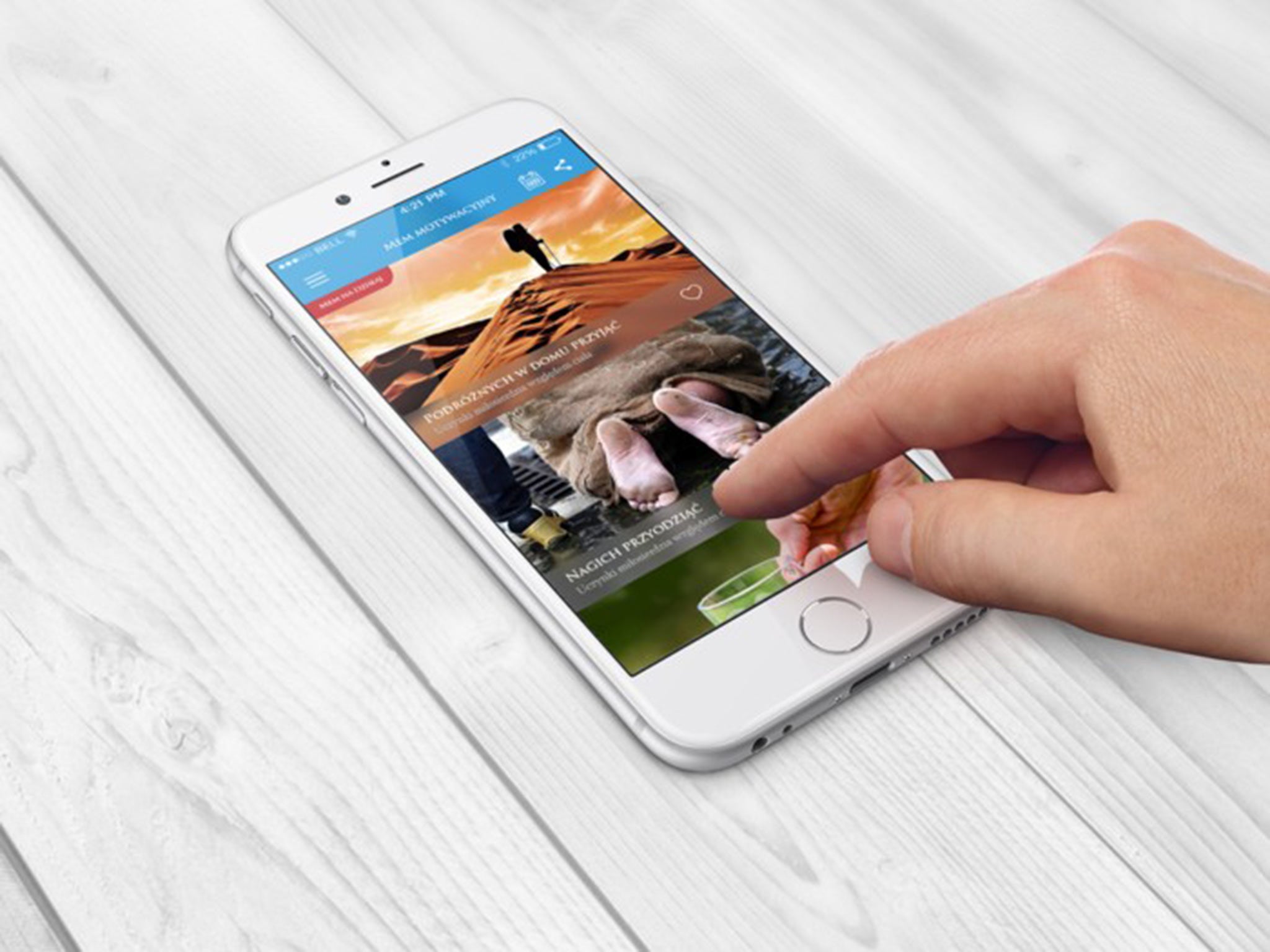How the Misericorsa app urges Roman Catholics to share their good deeds
As the Pope joins Instagram, is it time the Catholic faith embraced social media? Chloë Hamilton checks out an app that helps its followers to track and share charitable acts

Your support helps us to tell the story
From reproductive rights to climate change to Big Tech, The Independent is on the ground when the story is developing. Whether it's investigating the financials of Elon Musk's pro-Trump PAC or producing our latest documentary, 'The A Word', which shines a light on the American women fighting for reproductive rights, we know how important it is to parse out the facts from the messaging.
At such a critical moment in US history, we need reporters on the ground. Your donation allows us to keep sending journalists to speak to both sides of the story.
The Independent is trusted by Americans across the entire political spectrum. And unlike many other quality news outlets, we choose not to lock Americans out of our reporting and analysis with paywalls. We believe quality journalism should be available to everyone, paid for by those who can afford it.
Your support makes all the difference.Is a good deed still a good deed if you don't post about it on social media? Well, according to a new Catholic “good deed” app, possibly not.
Smartphone app Misericors – created recently by the Polish Church in honour of Pope Francis's birthday – allows selfless social media users to keep both a personal and a public record of their altruistic acts, encouraging them to incorporate “works of mercy” into their daily lives and inspire others with their good deeds.
The free app is available on Apple and Android and has been translated into 13 languages, including English, Spanish and Italian. Keen to find out more, I download it. I'm not a Catholic, but I do worship at the altar of social media, so I figure I'm up to the challenge.
Misericors is laid out simply with the good deeds divided into two categories: “Spiritual Works of Mercy” – which include admonishing sinners, instructing the ignorant and counselling the doubtful – and “Corporal Works of Mercy”, such as feeding the hungry, clothing the naked, and visiting the sick.
Within each sub-category are suggestions for good deeds. All the classics are there, of course (“I paid for someone's grocery shopping”; “I put somebody up for the night”), as well as some slightly left-field options (“I admonished someone face to face”; “I took an internet addict for a walk”.) Users scroll through the options, choose a deed, and upload a photo of them performing said deed, before adding a catchy hashtag and posting it onto their “wall”. Like on Twitter or Facebook, the post is then picked up by fellow good-deeders, who can click on “I will do it” or “I will pray” buttons, which are holy versions of a “like” or a “favourite”. The result is a seemingly endless feed of other people's good deeds.
But, while Misericors is meant to unite users' spiritual and social lives, some Catholics think the idea is essentially flawed. Former editor of the Catholic Herald Peter Stanford thinks the app risks coming across as obnoxious. “The impetus to do good deeds can only be generated from within as part of your own faith, religious life, or social conscience. It can't be prompted by some external communication means,” he says. “I thought you were meant to keep your good deeds to yourself. I thought you weren't meant to boast about them.”
Twenty-six-year-old Mike Kelly, who was brought up in a Catholic family, agrees. “Good deeds should be private and done for their own sake. It shouldn't be like sharing food on Instagram,” he says. “Good deeds cease to become inherently 'good' if they're done for approval. They become more like a currency.”
With Pope Francis making a foray into Instagram this weekend, though, religion and social media are fast becoming intertwined. The Pope – who already has 1.5 million followers on the photo-sharing site – launched his Instagram account on Saturday with a photo of himself praying alongside the words “pray for me”. The Pontiff already uses Twitter regularly, tweeting to more than 27 million followers across the world under the handle @Pontifex. It's thought his social media accounts are part of a push to engage young Catholics around the world.
So, can such apps ever be advantageous for the digital savvy Catholic? Although he wouldn't use it himself, Stanford can see some positives.
“Spotlight has just won the Oscar for best film and I think there is a sense at the moment that when people think about Catholicism, they just think about the bad deeds that are done in its name,” he says. “I suppose there is a wish somewhere along the line to redress that balance.”
Scrolling through the “good deed feed”, it's clear some Catholics are embracing the new world, posting about everything from visiting sick relatives to praying for Christians in need. I'm not spiritual myself, but even I can see the value in good deed reminders, although – like Stanford – I'm not sure I'd broadcast my philanthropy. With so much hate in the world, though, it's rather nice to have a site dedicated entirely to goodness – religious or otherwise.
Join our commenting forum
Join thought-provoking conversations, follow other Independent readers and see their replies
Comments